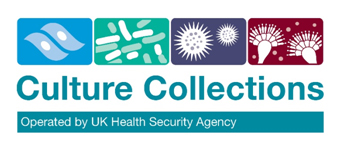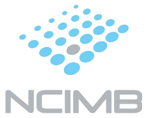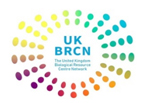.
Presentation
On behalf of the ECCO Board and the Local Organising Committee, Public Health England (PHE) Culture Collections would like to invite you to attend the 39th Annual Meeting of the European Culture Collections’ Organisation.
About the virtual meeting
Through six focussed sessions this virtual meeting aims to celebrate and debate culture collections, their history, present-day relevance and applications, and future direction. Topics include:
- the role, validation and use of culture collections
- access and benefit sharing
- contributions to research and collaborative projects
- microbiomes and the challenges of microbiome biobank development
- the need for quality, safety, biosecurity and transportation standards
- advances in bioinformatics and data management
Aims and objectives
ECCO annual meetings are a valuable forum for discussion and innovation on the future development of member collection activities. This year the meeting is hosted by Public Health England’s Culture Collections. The aim of the meeting is to promote collaboration and exchange of ideas and information about all aspects of culture collection activity.
.
.
Organizers, sponsors, collaborators

Session 1: Validation and use of culture collections (Wednesday 22 September)
NCMIB Ltd

NCIMB Ltd curates UK’s National Collection of Industrial, Food and Marine Bacteria and provides a range of microbiology, analytical and biological material storage services for industry and academia.
The name of our culture collection reflects its history rather than what it contains today – it includes thousands of ACDP category 1 and 2 organisms from all kinds of environments around the world including marine, soil, freshwater, foodstuffs and more.
We work with companies of all sizes from the food, drink, dietary supplement, agriculture, pharmaceutical and oil and gas sectors – helping them to manage the organisms they use in their projects, products and processes, as well as helping them to identify and monitor microbes that are potentially problematic.
Session 2: Nagoya Protocol and ABS (Wednesday 22 September)
UK Biological Resource Centre Network (UKBRCN)

The United Kingdom Biological Resource Centre Network (UKBRCN) was established to coordinate the activities of the UK national service collections of microbial organisms. The UK has a thriving medical and life sciences research and development community and biological resource centres play an important role in providing researchers with a wide range of authentic biological cultures for their research.
The UKBRCN comprises of 14 partner collections; you can find out more information by searching the databases of the individual culture collections.
Session 3: Microbiomes (Thursday 23 September)
Microbiology Society

The Microbiology Society is a membership charity for scientists interested in microbes, their effects and their practical uses. It is one of the largest microbiology societies in Europe with a worldwide membership based in universities, industry, hospitals, research institutes and schools.
International Journal of Systematic and Evolutionary Microbiology (IJSEM)is published by the Microbiology Society and owned by the International Committee on Systematics of Prokaryotes (ICSP), a committee of the Bacteriology and Applied Microbiology Division of the International Union of Microbiological Societies. IJSEM is the leading forum for the publication of novel microbial taxa and the ICSP’s official journal of record for prokaryotic names.
Session 4: Culture Collections projects and research (Thursday 23 September)
Diversity

Diversity (ISSN 1424-2818; https://www.mdpi.com/journal/diversity;Impact Factor 2.465) is a peer-reviewed, open-access journal on the science of biodiversity from molecules, genes, populations, and species, to ecosystems. Manuscripts are peer-reviewed and a first decision provided to authors approximately 14.1 days after submission; acceptance to publication is undertaken in 3.6 days (median values for papers published in this journal in the first half of 2021).
www.mdpi.com/journal/diversity
Session 5: Standards (quality, safety, biosecurity and transportation) (Friday 24 September)
PHE Culture Collections

Public Health England is the custodian of four unique collections of expertly preserved, authenticated cell lines, bacteria, viruses and fungi of known provenance for use in medical science and laboratory healthcare.
Scientists across the world use Culture Collections’ cell lines and microbial strains as controls for clinical diagnostics, environmental microbiology testing, quality control and validation studies, and in disease research and drug discovery. Bacterial and fungal strains are available in a freeze-dried (lyophilised) format. Viruses and cell lines are supplied as cryopreserved ampoules of living viruses/cells. Global distribution, including the shipment of restricted items, is underpinned by our subject matter experts in biosecurity and dangerous goods safety.
Session 6: Bioinformatics and data management (Friday 24 September)
NCMIB

NCIMB Ltd curates UK’s National Collection of Industrial, Food and Marine Bacteria and provides a range of microbiology, analytical and biological material storage services for industry and academia.
The name of our culture collection reflects its history rather than what it contains today – it includes thousands of ACDP category 1 and 2 organisms from all kinds of environments around the world including marine, soil, freshwater, foodstuffs and more.
We work with companies of all sizes from the food, drink, dietary supplement, agriculture, pharmaceutical and oil and gas sectors – helping them to manage the organisms they use in their projects, products and processes, as well as helping them to identify and monitor microbes that are potentially problematic.
